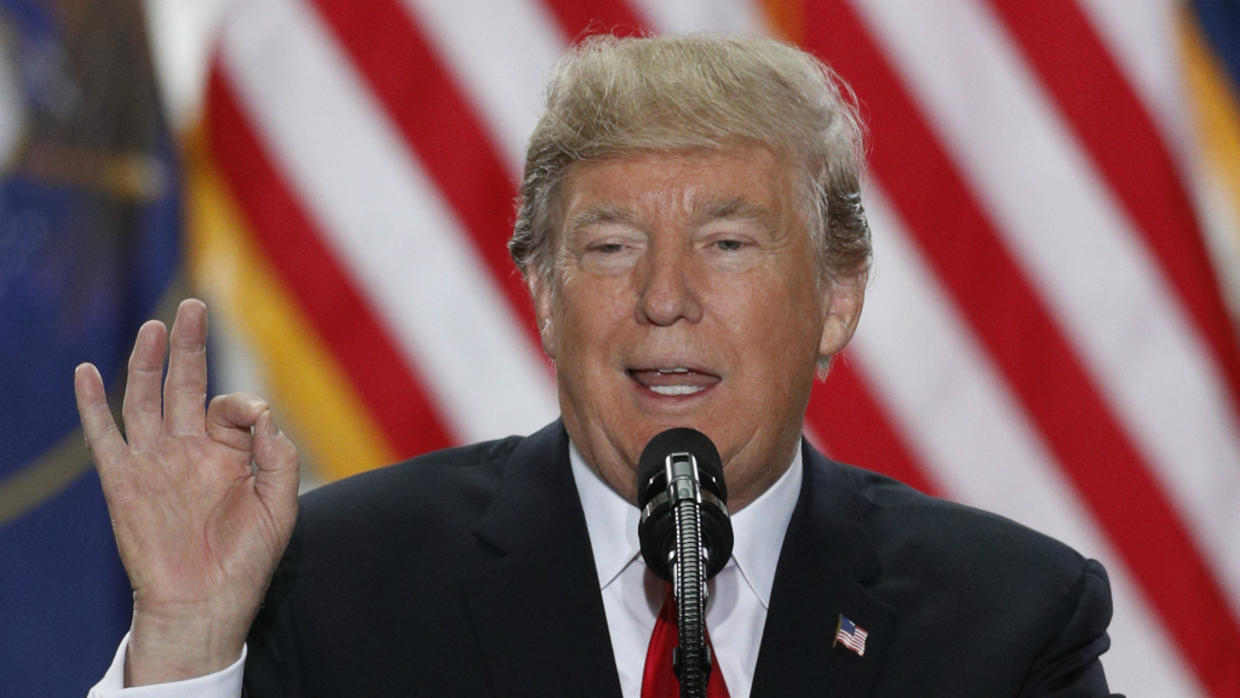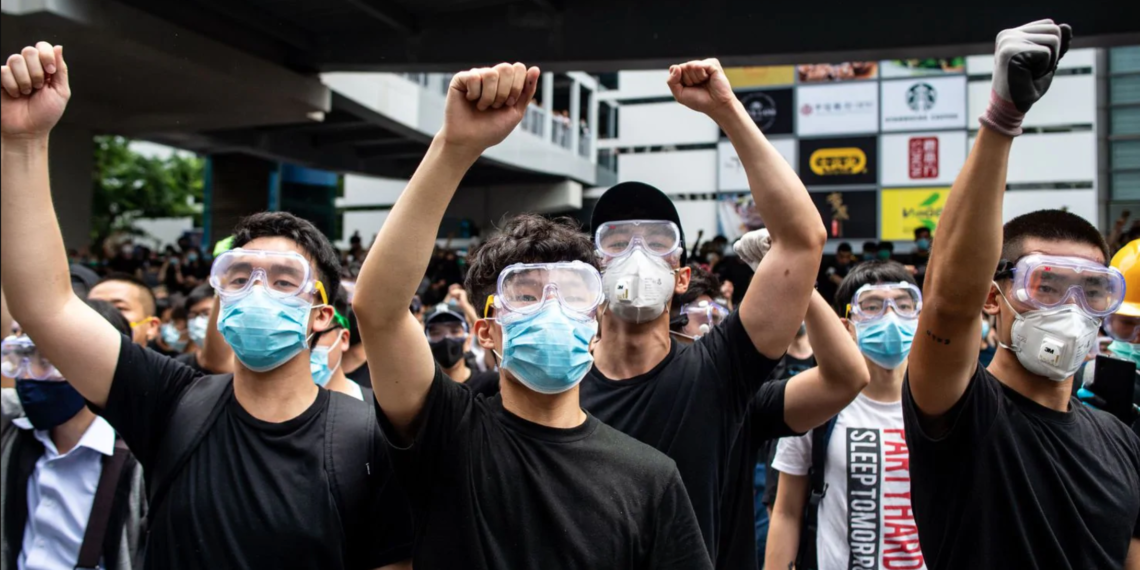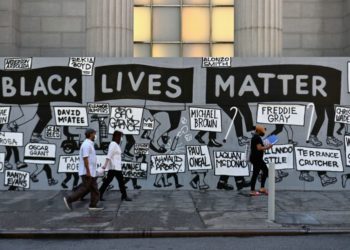Pro-democracy campaigners in Hong Kong vowed Friday to take to the streets in protest over what they said was China’s fiercest assault on the city’s treasured autonomy with its move to impose a security law.
The proposal for the legislation — expected to ban treason, subversion, and sedition — was introduced into China’s rubber-stamp parliament at the opening of its annual session on Friday morning.
It followed repeated warnings from China’s communist leaders they would no longer tolerate dissent in Hong Kong, a semi-autonomous city that endured seven months of massive pro-democracy protests last year.
“This is the largest nuclear weapon the Chinese Communist Party has used in its mutual destruction of Hong Kong,” Jimmy Sham, leader of the Civil Human Rights Front, which organized the million-person rally that kicked off last year’s unrest.
Sham appealed for millions to again take to the streets, while other activists used internet threads and chat apps to call for protests on Sunday.
Prominent democracy activist Joshua Wong said China’s message to protesters was clear. “Beijing is attempting to silence Hongkongers’ critical voices with force and fear,” Wong said on Twitter, while also expressing defiance. “HKers will not scare off in the face of wolf warrior policy.”
3/ [And how is the mood in HK?]
3.1/ This is the critical moment of the beginning of the end for every single citizen in HK. In the face of this draconian law, HKers will not be scared off from telling truths and fighting for our justice.
— Joshua Wong 黃之鋒
(@joshuawongcf) May 22, 2020
Amnesty International warned the legislation posed “a quasi-existential threat to the rule of law in Hong Kong”, and said it was “an ominous moment for human rights in the city.”
While China put forward its proposal as vital to reinforcing stability in the global financial hub, Hong Kong’s share market plunged on Friday with a drop of more than five percent in afternoon trade.
Eroding Freedoms
Hong Kong has been allowed a limited form of autonomy since returning from British to Chinese rule in 1997, with those unique freedoms enshrined under a “One Country, Two Systems” handover agreement. However, a huge pro-democracy movement has built in the face of fears China has been steadily eroding those freedoms.
The Communist Party made clear Friday the planned law was aimed at quashing the democracy movement.
“We must take powerful measures to lawfully prevent, stop and punish them,” vice chairman of the National People’s Congress’s (NPC) Standing Committee Wang Chen said, referring to “anti-China” forces.
Article 23 of Hong Kong’s mini-constitution, the Basic Law, says the city must enact a law to prohibit “treason, secession, sedition (and) subversion” against the Chinese government. But the clause has never been implemented due to opposition from the Hong Kong people fearful it would destroy their cherished civil rights.
https://www.youtube.com/watch?v=991qR0_XYHo
An attempt to have Article 23 pass through Hong Kong’s legislature in 2003 was shelved after half a million people took to the streets in protest against it.
China’s move would circumvent Hong Kong’s legislature by having it imposed by the national parliament.
Wang said Hong Kong’s delays in implementing the security law had forced the Chinese leadership to take action. “More than 20 years after Hong Kong’s return, however, relevant laws are yet to materialize due to the sabotage and obstruction by those trying to sow trouble in Hong Kong and China at large, as well as external hostile forces,” Wang said.
Hong Kong’s chief executive Carrie Lam vowed Friday to “fully cooperate” with Beijing, saying the government would “complete the legislation as soon as possible.”
She added at an evening press conference in Hong Kong — flanked by ministers and her cabinet — that the law would not affect the “One Country, Two Systems” framework or the city’s high degree of autonomy. “Hong Kong will remain to be a very free society where freedoms of protests, freedom of journalism will stay.”
US Warnings
In a statement, U.S. Secretary of State Mike Pompeo said: “The decision to bypass Hong Kong’s well-established legislative processes and ignore the will of the people of Hong Kong would be a death knell for the high degree of autonomy Beijing promised for Hong Kong.”
President Donald Trump gave a vague initial response that nevertheless warned of a stronger reaction. “I don’t know what it is, because nobody knows yet. If it happens, we’ll address that issue very strongly,” Trump said.

The U.S. Congress late last year angered China by passing a law that would strip Hong Kong’s preferential trading status if it is no longer considered autonomous from the mainland. The State Department warned China’s actions could impact its decision on that status.
U.S. senators on Thursday also introduced legislation to impose sanctions on any entity involved in curbing the city’s autonomy.
That could include police cracking down on demonstrators and Chinese officials involved in Hong Kong policy — as well as banks that conduct transactions with anyone involved in curbing the territory’s freedoms.























